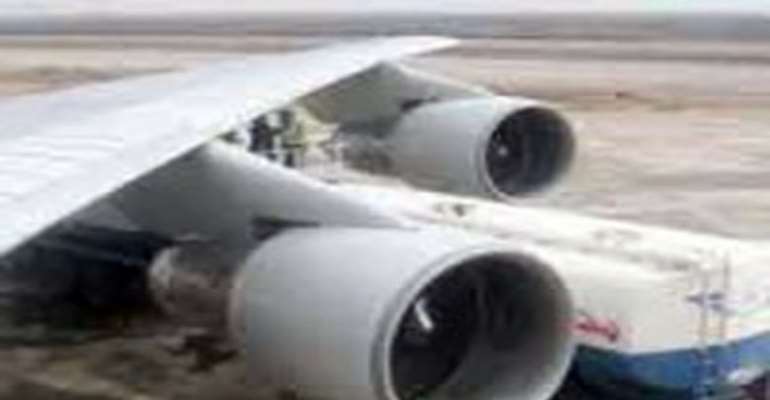Aviation: Securing the gains - Nigerian Tribune

Bowing to public outcry and arising from his position that ministers with political ambitions ahead of the 2015 general election should turn in their resignation letters, President Goodluck Jonathan, last Wednesday, dropped the Minister of Aviation, Stella Oduah and three others. While the Economic and Financial Crimes Commission (EFCC) is still investigating the former minister over the alleged purchase of two bulletproof cars for N225 million by an agency under her watch, there is a more pressing question which should engage the attention of the Nigerian public, namely how the legacies bequeathed to the nation by her stewardship can be sustained in the overall interest of the nation, particularly given the much-touted Transformation Agenda of the current administration.
If, as experience has shown over the years, one of the methods devised by public officials to enrich their pockets is the cancellation of the programmes of their predecessors, irrespective of their merits, and the invention of grandiose programmes that amount to nothing in the long run, there is an urgent need to avert such a recurrence in the few sectors of the national economy that have witnessed significant improvements in recent times, in particular the aviation sector. Although the tenure of the former Aviation Minister was dogged by the bulletproof cars scandal and widespread allegations of ethnic favouritism, her stewardship was, in our view, nevertheless remarkable for the aviation industry in a number of ways. Oduah's Aviation Master Plan was the first in the country's history, while the Civil Aviation National Policy was also reviewed for the first time in over 12 years. All the 22 federally-owned airports across the country were completely remodelled, a clear departure from the grim picture in the last three decades at least. It was also under Oduah's watch that 16 airports close to the nation's food baskets were designated as perishable cargo terminals to enhance the preservation, conditioning and transportation of perishable cargo in accordance with the global best practices, while five international passenger terminals are being constructed simultaneously in Lagos, Abuja, Port Harcourt, Kano and Enugu.
Other landmarks include the upgrading of obsolete power, security and firefighting infrastructure across major airports in the country; installation of cutting-edge navigational aids and Instruments Landing Systems (ILS), including runway lights and Total Radar Coverage (TRACON) to enhance air safety; installation of communication and surveillance infrastructure; easing communication between Air Traffic Controllers (ATC's) and pilots; installation of meteorological infrastructure to enhance weather observation, forecasting and reporting, together with the recently installed Accident
Investigation and Analysis Laboratory; the only one in the West African sub-region.
We are impressed by the advertised restructuring of the NCAA to expand and promote safety oversight, surveillance and human capital development in the industry; the comprehensive economic and consumer protection regulations; the streamlining of General Aviation (GA) to eliminate unauthorised commercial operations; the elimination of fraudulent Lease and Concession Agreements, and the promotion of private sector and international investors' participation in the aviation sector. Certainly, creating and installing cutting-edge revenue collection solutions, stringent regime of enforcement, reward for complete compliance and denial of privileges for violations and a more friendly operating environment for domestic carriers; and the new leasing company for aircraft, are all steps in the right direction. So is the modest number of jobs created in the sector, following the remodelling works on 22 airports and five new international terminals.
At the risk of being repetitive, the politics of discontinuity has always cost the nation dearly. It breeds wastage, aborts the people's expectations from the government and erodes the public confidence in the government. To be sure, not all cases of abandoned projects are fuelled by politics. But the majority are, and that is the kernel of the matter. To take one notorious example, the cancellation of the Lagos Metroline network conceived by Governor Lateef Jakande during the Second Republic by the regime of Major General Muhammadu Buhari in 1985 was at a loss of over $78 million to Lagos State. The cancellation was fuelled by crass politicking. Again, the cost of completing the projects abandoned by the Niger Delta Development Commission (NDDC) alone was put at N1.4 trillion. And according to the report of the Presidential Projects Assessment Committee (PPAC) set up in March 2011 by President Goodluck Jonathan, 11,886 abandoned projects would require an estimated N7.78 trillion to complete.
Against this backdrop, the Federal Government owes the nation a bounded duty to ensure that the laudable programmes in the aviation sector are sustained, as doing otherwise will retard the tremendous progress already recorded in the sector in the past two and a half years, and the nation will be the worse for it.
